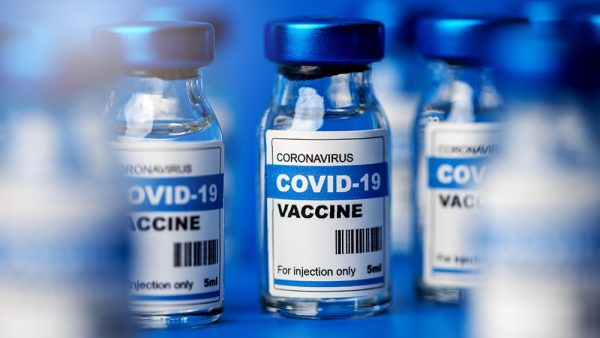 Parler
Parler Gab
Gab
COVID-19 vaccines add to the chronic disease burden in children, increase hospitalizations
The study, led by Dr. Julia Hippisley-Cox, a professor of clinical epidemiology at the University of Oxford, investigated a national database that included data on COVID-19 vaccination status, mortality, hospital admissions, and infections. The team of researchers were looking for an association between COVID-19 vaccines (AstraZeneca, Pfizer, and Moderna) and various outcomes, including myocarditis. The study examined data up to August 7, 2022, comprising a population of nearly 5.2 million children, including 1.8 million aged 5 to 11 and 3.3 million aged 12 to 17. In their primary analysis, researchers found elevated risks among 12- to 17-year-olds who received Pfizer's vaccine, including an increased risk of myocarditis and hospitalization with epilepsy after both first and second doses. Females in this age group were also more prone to demyelinating disease after the second dose. Moreover, females who received AstraZeneca's shot faced a significantly higher risk of hospitalization with epilepsy and appendicitis. The data on the Moderna vaccine was incomplete because the vaccine was not widely distributed to UK children. In a secondary analysis that compared vaccinated children against unvaccinated children, there was an increase in hospitalizations for vaccinated children 12 to 17 years old. These hospitalizations included epilepsy, severe allergic shock, and appendicitis, all attributable to Pfizer’s COVID-19 vaccines.Study authors still recommend COVID-19 vaccines for children, despite failing to protect them and increasing hospitalizations
The authors of the study had previously served on various UK and Scottish Government COVID-19 advisory groups that recommended COVID-19 vaccines for children. The authors, funded by the National Institutes of Health, also enjoy financial ties to Moderna and AstraZeneca. This could be the reason why the authors provided a perplexing conclusion to the study’s results. The authors said that their findings “support a favorable safety profile of COVID-19 vaccination using mRNA vaccines in children and young people aged 5-17 years.” This mockingly dangerous conclusion should put all their careers in jeopardy, considering that the study found an increase in hospitalizations because of the COVID-19 vaccines. The lead author, Dr. Julia Hippisley-Cox, did not comment on the study. Udi Qimron, a professor at Tel Aviv University’s Department of Clinical Microbiology and Immunology, said that the authors wrongly downplayed the risks associated with the vaccines. "It is concerning that respected scientific platforms are being used to cover up mistakes and wrongdoing, particularly the coercion and immense societal pressure to vaccinate young children. This should never have been done," Qimron said. "It is disheartening to see scientific journals collaborating with such practices, which undermines public trust in scientific research, especially when it involves the health and safety of children." Sources include: TheEpochTimes.com CDC.gov Nature.comUK grocery chain to sell EDIBLE INSECTS as affordable protein source amid cost-of-living crisis
By Belle Carter // Share
Nuclear War: Why we should be thinking about it now
By News Editors // Share
High court rules Covid mRNA jab is NOT A VACCINE, so what is it?
By S.D. Wells // Share
By Arsenio Toledo // Share
Governments continue to obscure COVID-19 vaccine data amid rising concerns over excess deaths
By patricklewis // Share
Tech giant Microsoft backs EXTINCTION with its support of carbon capture programs
By ramontomeydw // Share
Germany to resume arms exports to Israel despite repeated ceasefire violations
By isabelle // Share










